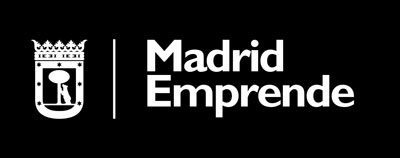- If a company carries out or is going to carry out operations subject to value added tax (VAT) with another member state, it must be registered in the Registry of Intra-Community Operators
- It is necessary to know all the information regarding the taxes that apply in the European Union
When embarking on the adventure of entrepreneurship, one of the main objectives pursued is to grow. Throughout the life of a business, different forms of growth may be presented but, without a doubt, expanding borders is one of the viable options to grow and prosper.
For small and medium-sized companies in our country, being able to start a business in a neighboring nation of the European Union provides them with a new market to offer their products. However, before diving in, it is necessary to know all the information regarding the taxes that apply in that territory.
Value added tax (VAT)
This is the case of the value added tax (VAT) which, although it has general rules of application throughout Europe, can vary between countries. However, before taking into account what type of VAT applies in each member country, some preliminary steps must be taken into account.
If the company carries out or is going to carry out operations subject to value added tax with another member state, it must be registered in the Registry of Intra-Community Operators (ROI). To do this, you must have a regulated tax identification number.
This inclusion in the registry is achieved through the presentation of form 036, checking box 582 for the registration request. The date of the first operation is completed in box 584 and if after 3 months of its presentation there is no response from the Tax Agency it can be declared as denied. The presentation of this model can be done in person or on-line through the electronic headquarters of the Tax Agency. To proceed with the verification of registration within the European Union, it can be done through the digital consultation at the commercial records search engine.
When the small or medium-sized business or self-employed person has its registration in the European Union, it can carry out its commercial activities in any of the countries that make up the EU and proceed to pay VAT in a manner on-line. The destination country must be taken into account to know what type of tax must be applied, regardless of the company's country of origin.
VAT rates
There are several types of VAT that can be applied depending on certain circumstances and rules specific to each member country. Therefore, when considering starting a business elsewhere in the EU, it is necessary to know that there are the following types of value added tax:
- Normal VAT rate: is the one that applies to the supply of most goods and services. Each territory decides what percentage to apply as long as it is not lower than 15%.
- Reduced VAT rate: applies to the supply of certain goods and services reflected within the list in Annex III of the VAT directive. This general list is at the European level and can never be a value lower than 5%.
- Special VAT rates: Only some countries are authorized to apply them to certain supplies. They initially appeared as temporary measures to facilitate the application of VAT and have progressively disappeared over time. There are three types:
- Super reduced: lower than 5% and apply to a limited list of goods and services in some EU countries.
- Zero type: In some countries it applies to certain sales. Here the consumer does not have to pay VAT, but the SME or self-employed person still has the right to deduct VAT from the purchases they have made, which are directly related to the sale.
- Guy parking: this rate is applied by some countries for certain supplies of goods and services, which are not found in Annex III of the VAT directive, mentioned above. Reduced rates of VAT are applied on these supplies, instead of the normal rate, provided that it is not lower than 12%.
EUgo: Spanish single point of contact for the services directive
The EUgo portal It is aimed at all national businessmen and entrepreneurs and those from the member states of the European Union who need authorizations, registrations in registers, licenses, and all those administrative or professional requirements to carry out a remunerated economic activity or create a company in Spain.
It is a single point of contact (single window) for EU service providers to carry out on-line all procedures and formalities related to the exercise of its activity.
In conclusion, the expansion of frontiers in the business sphere, particularly in the context of small and medium-sized enterprises within the European Union, offers significant opportunities for growth. However, before venturing into new markets, it is crucial to understand and address tax complexities, especially when it comes to value added tax (VAT).

